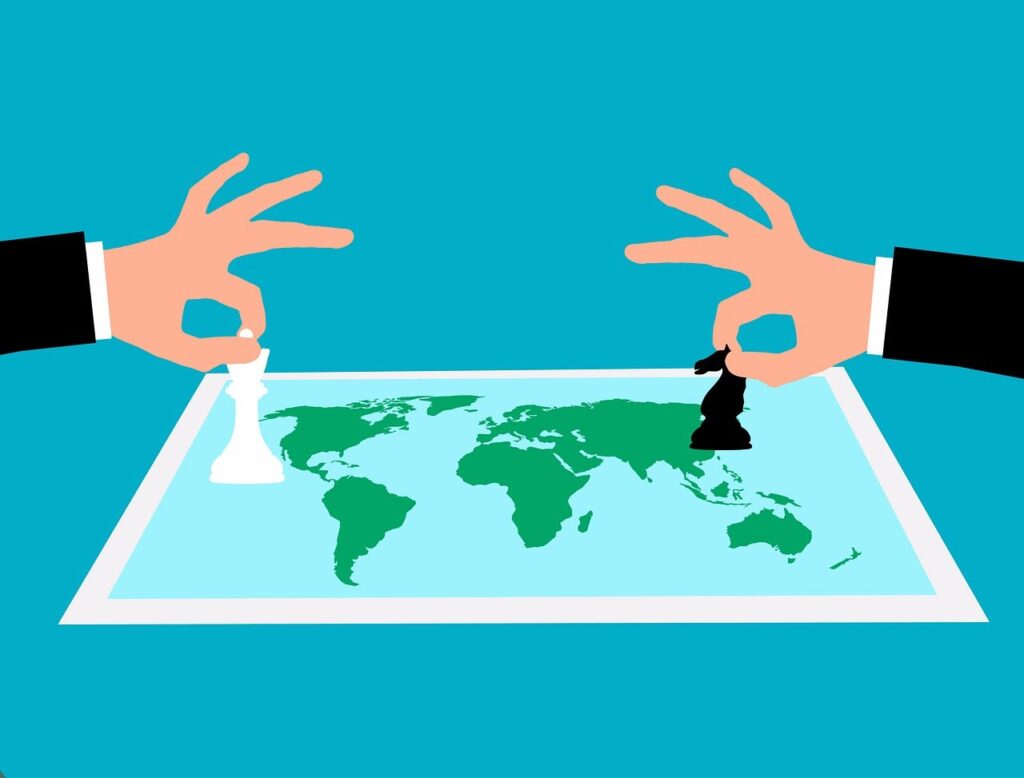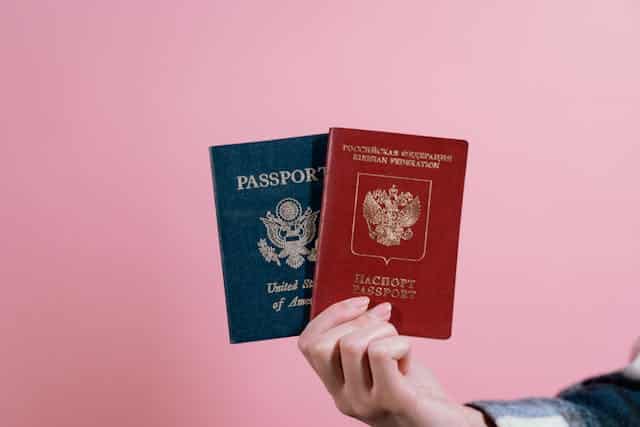The recent crisis around Ukraine has sparked global diplomacy. Highest representatives of various countries are constantly in dialogue which aims in reducing the risk of conflict and finding solution which will satisfy all parties involved. Issues currently discussed all over the world are very serious, the relations between countries are fragile and sensitive. Continuous diplomatic effort is crucial, but it has to be clear and direct. A wrong translation may cause some serious issues between countries participating in the dialogue. Current events have only highlighted the importance of translation in diplomatic communication. In this article we will explain, why the role of translation in diplomacy is greater than ever.

What is the Purpose of Translating in Diplomacy?
The purpose of translation when applied to diplomacy is to allow intercultural communication during international relationships. This enables people to send an unchanged message which will be understood by the receiving party.
Professional translation is always a must in diplomatic relationships. If the translation is not accurate enough this may cause misunderstandings and lead to hazardous consequences.
What is Diplomatic Translation? Phases and tasks
Diplomatic Translation is the process of translation applied to a diplomatic environment. It is a very demanding field in translation, where mistakes are not allowed. In addition it can be divided into specific tasks which are performed only by professionals specialized in that field. There are two main tasks, both crucial for diplomacy:
1. Translation of Diplomatic Documents and Agreements
Written texts are essential on diplomacy. Texts contain instructions and negotiating briefs so important that can confer accreditation or official powers to the diplomat carrying them. Texts are also the main outcome of negotiations.
For certain texts – or parts of texts – stereotyped formulas exists: letters of accreditation, full powers, opening and final clauses of treaties, even diplomatic notes. For all texts that are meant to be shared with another party or other parties, there are traditional requirements of polite formulations.
This task doesn’t allow mistakes and demands very precise knowledge regarding the topic of translated content. Confidentiality is required.
2. Translation of Diplomatic Conversation
Diplomatic Conversation is an established method for influencing the decisions and behaviour of foreign governments or peoples through dialogue, negotiation, and other measures in matters of war or violence.
Modern diplomatic practices are a product of the post-Renaissance European state system. This task requires everything needed in the previous one, while also being able to precisely and quickly translate the whole message in the real time.
What are the Traits of Diplomatic Translation Professionals?
Diplomatic translators are always specialist translators, often coming from bilingual households which gives them advantage of being native in two languages. This allows very precise translation of messages, not only words. It also enables them to fluently speak and think in both languages which is important during international diplomatic events, when quick translation enables swift conversation between all dialogue members.
A diplomatic translator will always be specialized in some field relevant to international diplomacy. Some of them can focus on military, while others work with economy or trade. Diplomatic translation professionals will know every word and terminology present in his/her field of interest so both parties can reach very clear understanding of each other’s statement. In addition, those who translate in diplomacy have to be trustworthy, confidential and flexible.
What are the most important aspects of Diplomatic Translation?
Diplomatic translation shares many similarities with other types of specialized translation, however it demands bigger expertise and more precision. Some of the most important aspects of translation in politics are:
1 – Preserving the message
We have mentioned this before, but in international diplomacy or international politics, communication is really crucial. Any mistake can have some serious consequences. It’s important that the translator is native and aware of cultural context in both languages. In this case international communication expert will transfer directly the message, not each word separately.
2 – Confidentiality
The work of diplomatic translator requires top level of confidentiality. After all he/she may often translate very sensitive information, which could potentially be dangerous in the wrong hands.
3 – Speed
This aspect is quite important, especially during bigger international gatherings. Most members will speak in their native languages, the message need to be translated to every participant at the same time, same goes for response. Quick translations is crucial if all dialogue participants are to keep up with the topic. Fast and precise message transfer allows politics to focus on finding solution, instead of stressing about receiving incomplete or altered information.
The role of Diplomatic Translation and Interpretation
Diplomatic translation is present in the very core of modern international politics. It is what enables cross-cultural political communication in the first place. Without it countries wouldn’t be able to trade, cooperate and resolve problems between each other. It allows whole humanity to speak in one voice. It’s crucial while tackling challenges which are relevant to every inhabitant of our planet such as climate change or COVID-19 pandemic.
As we have seen recently, world leaders stated that during the crisis around Ukraine we have to remember to keep participating in dialogue. This is the only good solution. Efficient dialogue however, is not possible without translators. The issues discussed by every participating party are very serious and aspect such as message preservation, confidentiality and speed of translation are absolutely crucial if we want to find some common ground. While looking for compromise we should always try to see the problem from the perspective of all parties. Translators which understand cultural context can transfer the message in a way which will be very clear for every member of dialogue. In fact, translation can affect whole economies and even save lives.
In the era of globalization translation becomes more important than ever. If you need professional, certified for quality translation services contact our team at TranslateDay.



